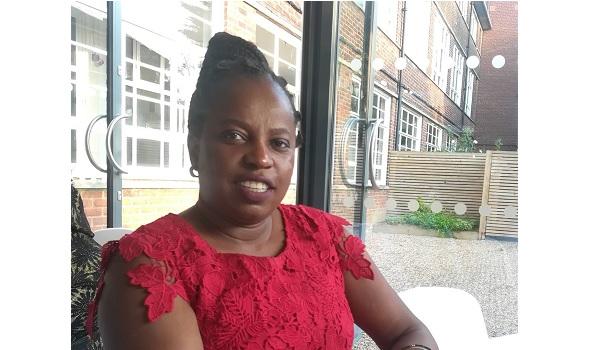Fighting racism with solidarity: Hilda's experience as a BME social worker in the UK
Fighting racism with solidarity: Hilda's experience as a BME social worker in the UK

Whenever Hilda Chehore arrived at work and said a breezy “Good morning” to her social work colleagues, her words fell on deaf white ears.
“It was very frustrating,” she recalls. “I was wondering why they weren’t responding.
“The others were friends, they met at weekends and in the evenings, so I wasn’t a part of the team. I was isolated, but social work is a difficult job – you need someone to talk to.”
Hilda qualified as a teacher in Zimbabwe but, after coming to the UK in 2002 and finding that as a supply teacher she had no chance to establish relationships with the pupils, retrained as a social worker at Portsmouth University. In her first job she was made to feel different as the only BME (black and minority ethnic) social worker in the team, but turned frustration into action by joining a more supportive agency and in 2015 founding an organisation for fellow Zimbabweans and later for all BME social workers.
The new agency was more diverse: “They encouraged migrants to work. They were supportive. They didn’t see me as a migrant but as a social worker.”
Nevertheless, she says, some social work managers still create the cliquey atmosphere she found in her first job. BME staff feel like outcasts, get little support, are bypassed for promotion, and tend to get blamed for all shortcomings and failures. Yet managers often react negatively to the consequent complaints: “People in the UK struggle to understand racism,” she says. “There is a wilful blindness about it.”
That’s what ZUKSWA (Zimbabwe UK Social Workers Association)/UKSWA (to embrace the non-Zimbabweans) is fighting.
Establishing the organisation was a struggle, Hilda recalls. Initially, she paid the bills from her own pocket. But news spread by word of mouth and now there are 200 members paying a subscription. Nevertheless, funding remains the main problem.
“I would like to have more numbers by now,” she admits. “We lost a few because they didn’t want to pay a subscription – we’ve had to be strict because we couldn’t pay out of our personal money.”
The organisation’s activities include developing an understanding about the experience BME social workers can bring to the UK; finding work placements for student social workers; ensuring that race and nationality play less of a role in recruitment or career development; fostering camaraderie; offering support, helping improve conditions and pressing for more senor level BME staff. The organisation holds community days to raise awareness on social issues for BME communities and in May held its first national conference. The theme was ‘Encouraging people to climb the career ladder’, with advice from BME staff who have reached the upper rungs.
Despite moving to a new country, retraining and starting a new job and setting up her own organisation, to say nothing of experiencing discrimination and prejudice, Hilda is still embarking on new ventures: this year she will start a PhD.
“If you are passionate about something, you go for it,” she says, emphasising that “there are a lot of positive to being in the UK – I’m empowered and inspired.
“My identity is here,” she adds, "but I still have part of my Zimbabwean culture. I carry it around with me.
“I think that because of the number of years I’ve lived here I’ve managed to integrate and be part of what happens in the UK,” she says. “I see UK as my home. That’s why I’d like to make it better for everyone.”


